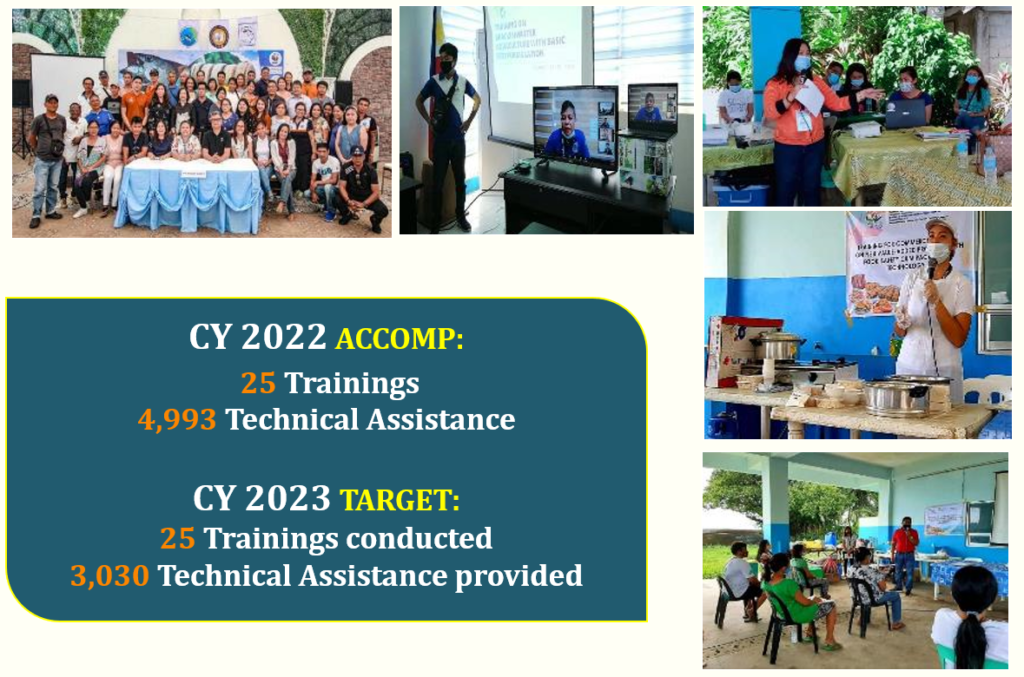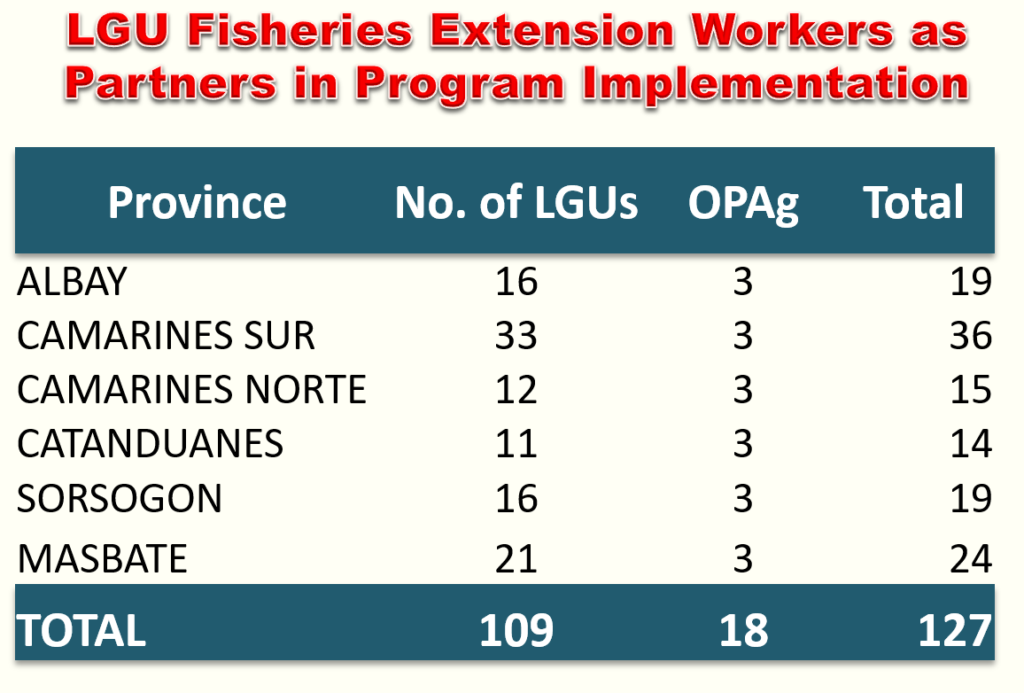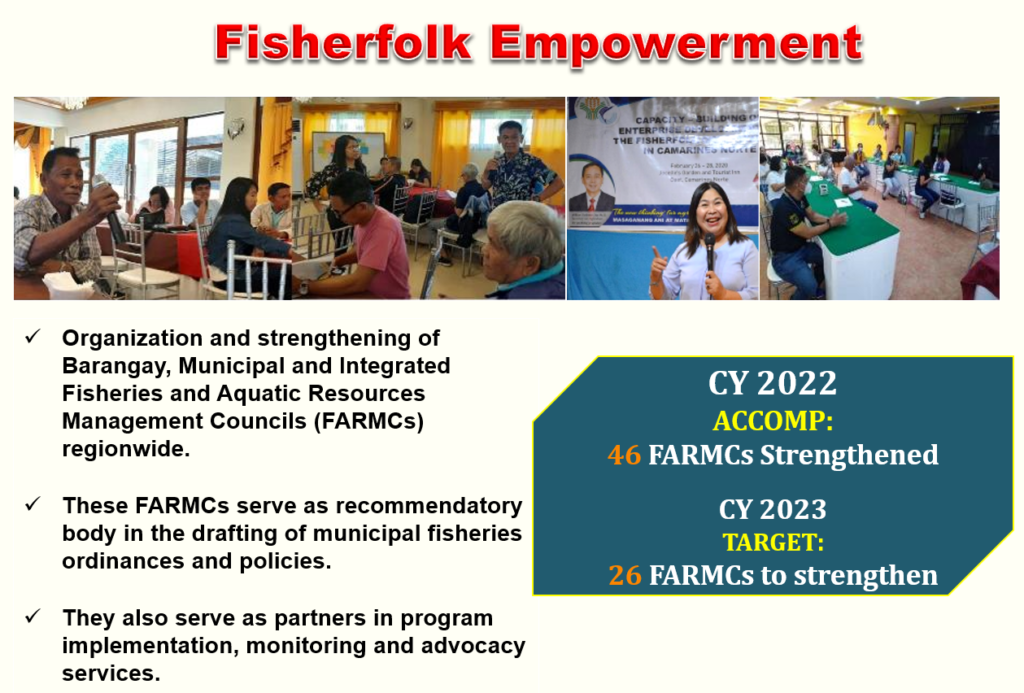Technical Advisory Services
Extension Support, Education and Training Services
BFAR, in cooperation with the LGUs, fisherfolk organizations and the private sector, will continue to provide fisheries training and extension services on aquaculture, marine fisheries and post-harvest technology to fisherfolk nationwide. Different strategies will be utilized to ensure that results of scientific research studies will reach its target audience and in pursuit of a modernized and self-sufficient fisheries sector.
These strategies include facilitating access to credit for marginalized fisherfolk, and small and medium scale enterprises engaged in fisheries; provide scholarship programs to produce a critical mass of highly qualified fishery manpower; conduct public information to create awareness on fisheries and other relevant information.
Establishment of Technology Demonstration Farms
Technology demonstration is one of the major activities conducted by BFAR to showcase different innovative technologies on seaweed production, integrated farming, aquasilvi/mangrove culture and shellfish culture among others. This program is targeted to establish 1,243 technology demonstrations, which will include aquaculture, integrated farming, upland aquaculture and others that are anticipated to benefit 642 individuals and 335 groups.
One of the components of this program is the Aquaponics which is a combination of aquaculture (raising fish) and hydroponics (soil-less growing of plants) that grows fish and plants together in one integrated system. An example is the African catfish or tilapia with a lettuce production system either for household consumption and business purposes. Urban aquaponics aims to provide alternative aquaculture technology that serves as a source of food (i.e. fish and vegetable plants) for household families especially during this COVID-19 crisis in targeted urban areas. Aquaponics also intends to augment income and earnings from the local fish-vegetable production with high return on investment.
Information Support Services
Under this component, the Bureau will conduct a massive information campaign to create awareness among municipal fisherfolk through multimedia and other mediums of communications, in coordination with other concerned agencies such as LGUs, NGOs, NGAs and other relevant stakeholders.
In conducting information, education and communication campaigns, a total of 6,374 IEC materials are projected to be developed and produced, while 153,540 IEC materials will be distributed in 2023.
Stakeholder Collaboration and Partnership
The implementation of BFAR projects and programs are deemed to be more successful in providing livelihood assistance and increasing income of the fisherfolk in coordination with other partners such as the LGUs, NGOs, NGAs and the private sector. The Bureau also coordinates and develops cooperation schemes with international markets and organizations to open more market opportunities.
In line with this, 16 more Fisherfolk Operations Center and 371 FARMCs will be strengthened and 1,546 LGU technicians will be assisted. Moreover, 215 other stakeholders such as the academe, NGAs and NGOs are expected to be part of the collaboration. Under the Fisheries Scholarship Program, a total of 1,397 scholars will benefit from the program.



